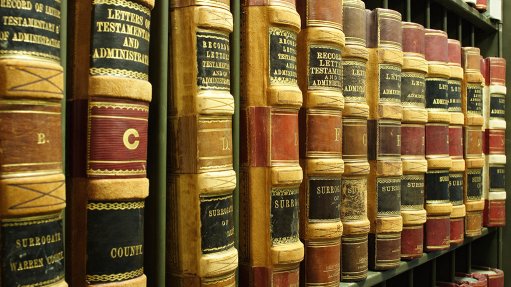
The Law Society of South Africa (LSSA) joins the Presidency and the Office of the Chief Justice in expressing its sadness at the passing of retired Constitutional Court Judge, Justice Thembile Skweyiya.
‘We echo the words of the Chief Justice that Justice Skweyiya – who started his legal career as a member of our profession in 1968 – went on to serve the nation with great distinction as an anti-apartheid practitioner, advocate, Judge of the High Court as well as a Justice of the Constitutional Court,’ say LSSA Co-Chairpersons Busani Mabunda and Richard Scott.
They add: ‘Justice Skweyiya has been widely regarded as the first African to obtain silk in South Africa. He practised as an advocate not only in the commercial sphere but increasingly in political, human rights and civil liberties matters, and represented South Africans across the ideological political spectrum who had been arrested and detained for opposing a racist and oppressive regime. Through his thirteen-year tenure (two as an Acting Judge) on the Constitutional Court Bench, Justice Skweyiya made an impact on the body of constitutional jurisprudence and indeed made significant and bold contributions to the development of our constitutional democracy.’
In fact, his 2009 judgment in Leon Joseph and Others v City of Johannesburg and Others was described as an exciting development in South African jurisprudence which in effect broadened the scope of application of administrative law procedural fairness to apply to decisions related to the public law duty of the State to provide basic services effectively, efficiently and fairly and the concomitant public law right of people to receive those services in that manner. Some hailed this decision as signaling the re-emergence of the value of Ubuntu in the relationship between the government and its citizens.
His words to law students at the Fort Hare University, where he was Chancellor, should serve as a guide to all lawyers: ‘We should all be proud of the strength and independence of our judiciary. It is this independence which allows us all – judges, magistrates and lawyers – to uphold the rights of South Africans.’ He reminded us that the Constitution not only tells us what the law must be, it also tells us what kind of lawyers and jurists we must be:
‘To be a lawyer in South Africa today you must act with integrity, and in doing so you will ensure that the judiciary remains independent and that the rule of law remains… .To be a lawyer in South Africa today means that you are committed to this ideal – that you will play your part in creating a democratic society where every person can realize the rights protected in the Bill of Rights.’
Indeed, Justice Skweyiya was such a lawyer and such as a judge.
We express the deep condolences of the attorneys’ profession to his wife, Ms Sayo Nomakhosi Skweyiya, his children and grandchildren, and close friends.
Issued on behalf of the Co-Chairpersons of the Law Society of South Africa, Busani Mabunda and Richard Scott